Doctor's call to 'equally protect' boys with HPV vaccine
- Published
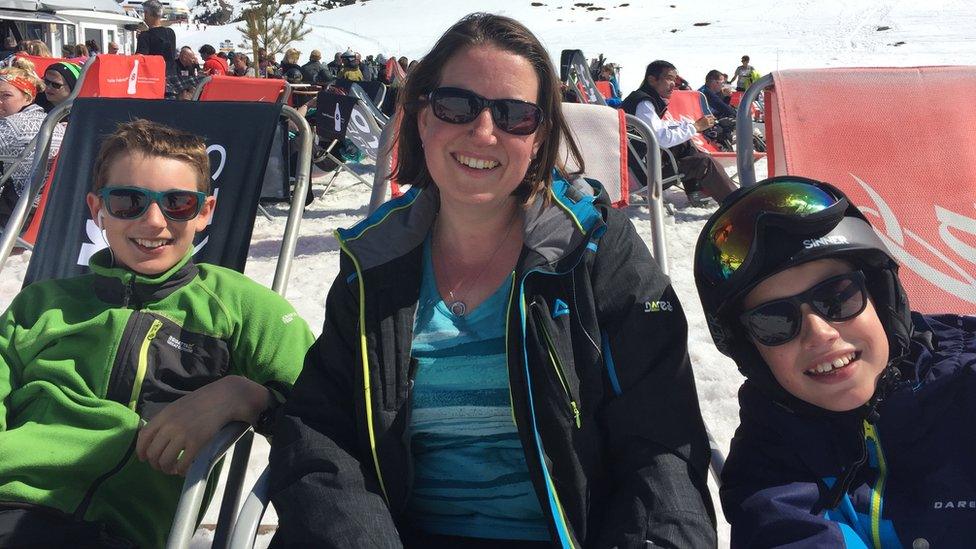
Kirsty Bonney says she believes the vaccine should be available to all adolescents
A doctor is calling for boys to receive a vaccine currently only given to girls to protect against cancer.
The Human Papilloma Virus (HPV) jab is offered to teenage girls in the UK to protect against cervical cancer.
A health committee was expected to meet later to review whether boys should also get the jab, which can protect against throat and penile cancers.
Dr Kirsty Bonney, from Devon, paid privately for her sons Zak, 13 and Finn, 11 to be immunised.
She made the decision after working on a chemotherapy unit, where she looked after two young men with HPV-related throat cancers.
She said she wants to see boys "equally protected" with the HPV vaccine rather than risk cancer in later life.
'Fear of cancer'
"I could never really understand why we weren't vaccinating boys and then I discovered we could have it done privately," she explained.
"I'd be much happier knowing all the boys' friends were equally protected.
"I wouldn't want to be seeing one of their friends in my surgery in a few years time [with cancer] because they hadn't been vaccinated.
"[The jab] is certainly not cheap [at £540 for both boys] but the cost of that compared to the thought of them getting a throat cancer puts it into perspective."
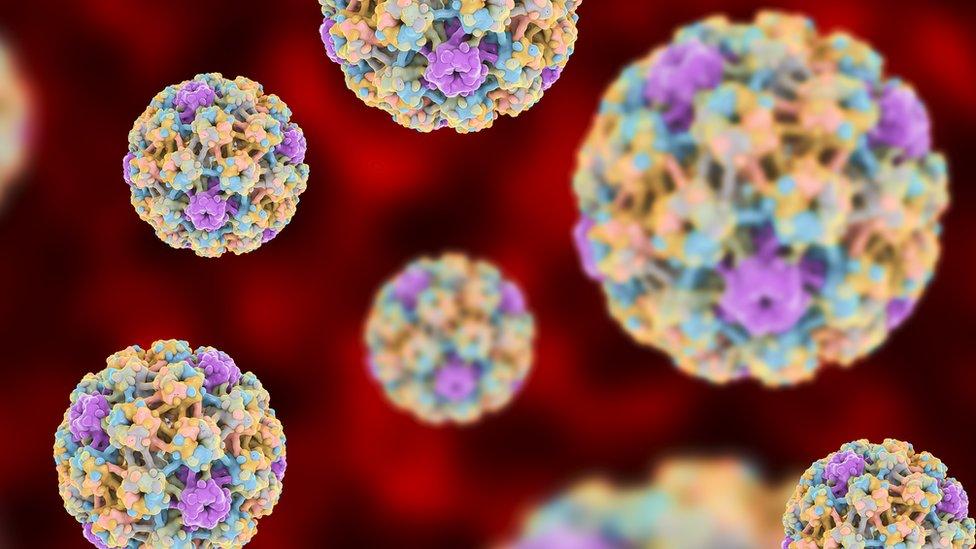
Australia, USA, Italy and Canada are among the countries that recommend vaccinating girls and boys
The Joint Committee on Vaccination and Immunisation (JCVI) advises UK health departments on immunisation and is considering extending the programme to include boys.
It said there was increasing evidence on links between HPV infection and other cancers.
It will discuss the matter at a meeting later and has asked Public Health England to look at the cost effectiveness of such a change.

Why should boys be vaccinated against HPV?
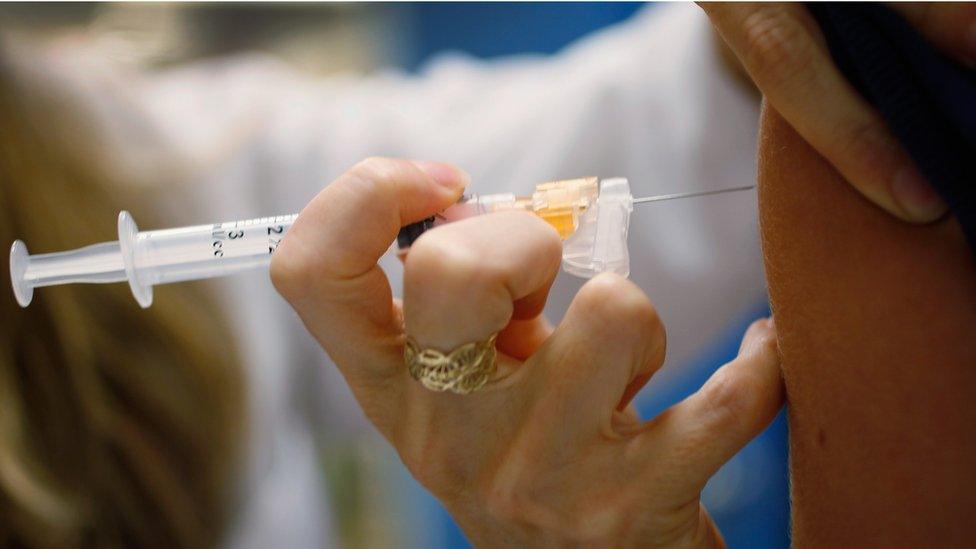
About 15% of UK girls eligible for vaccination are currently not receiving both doses, a figure which is much higher in some areas
Men may have sex with women too old to have had the HPV vaccination
Men may have sex with women from other countries with no vaccination programme
Men who have sex with men are not protected by the girls' programme
The cost of treating HPV-related diseases is high - treating anogenital warts alone in the UK is estimated to cost £58.44 million a year, while the additional cost of vaccinating boys has been estimated at about £20 million a year
Source: HPV Action

Gary Tanner, from Somerset, was diagnosed with HPV-related throat cancer in 2013.
He has undergone chemotherapy, radiotherapy and had his voice box removed. The 64-year-old said vaccinating girls alone made no sense.
"I am still living with cancer and most certainly my wife and I are living with the fear of cancer. We know it has shortened my life expectancy.
"There are vaccines available to prevent to protect people against this. I think they should be used on all available members of the public."

Different types of HPV
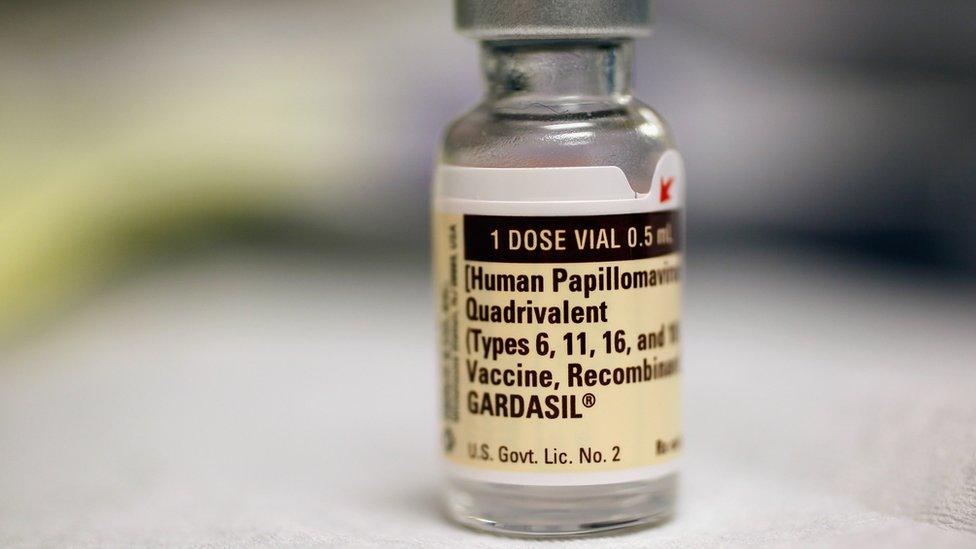
Infection with HPV is the cause of almost all cervical cancers.
However there are more than 100 different types of HPV and infection with other types of the virus may cause:
Genital warts
Skin warts and verrucas
Vaginal cancer or vulval cancer
Anal cancer or cancer of the penis
Some cancers of the head and neck
Laryngeal papillomas (warts on the voice box or vocal cords)
Source: NHS

Campaign group HPV Action said it was "unfair that females should be expected to bear sole responsibility for tackling an infection that affects both sexes similarly".
In a letter to the JCVI, external, it said "significant" numbers of men will have sex with unvaccinated women.
"While private vaccinations can protect individual boys, this is not a solution for the male population as a whole," a spokesman added.
Public Health England's (PHE) head of immunisation Dr Mary Ramsay said boys are already protected, with around 85% of eligible girls fully immunised.
She said: "This helps to prevent the spread of the disease in girls and boys.
"PHE has been asked by the independent Joint Committee for Vaccination and Immunisation (JCVI) to look at the impact of extending the HPV vaccination programme to adolescent boys.
"We are also running a pilot vaccination programme in men who have sex with men. The JCVI will review the evidence from this work."
- Published5 April 2017
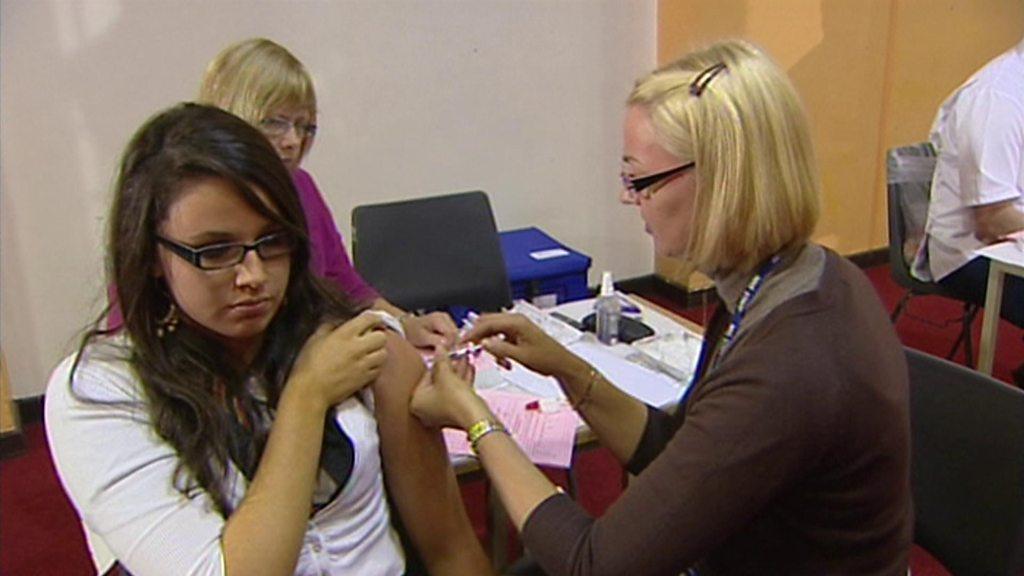
- Published21 July 2013
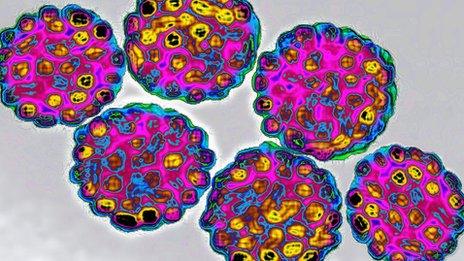
- Published1 February 2013
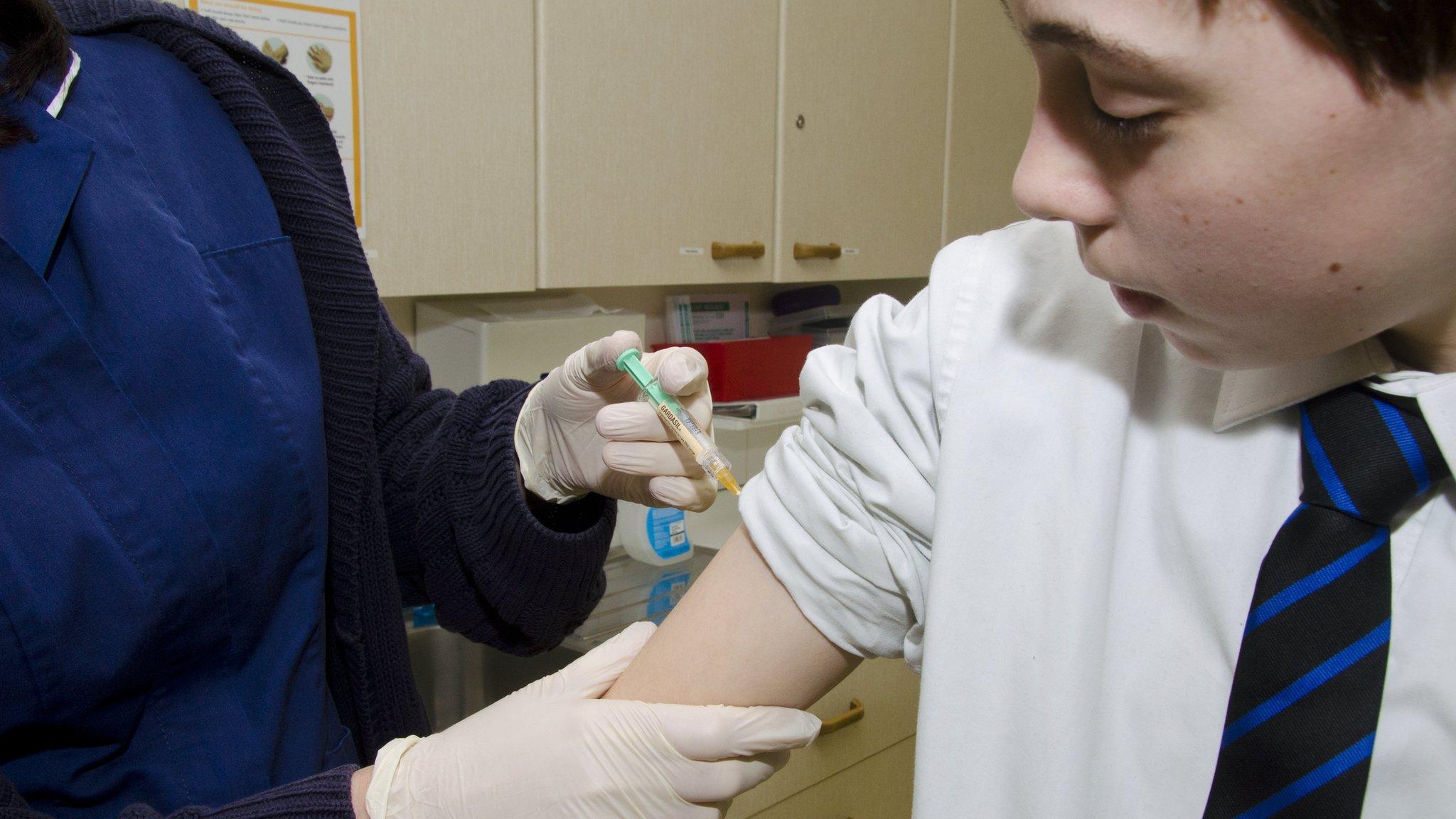
- Published8 August 2010